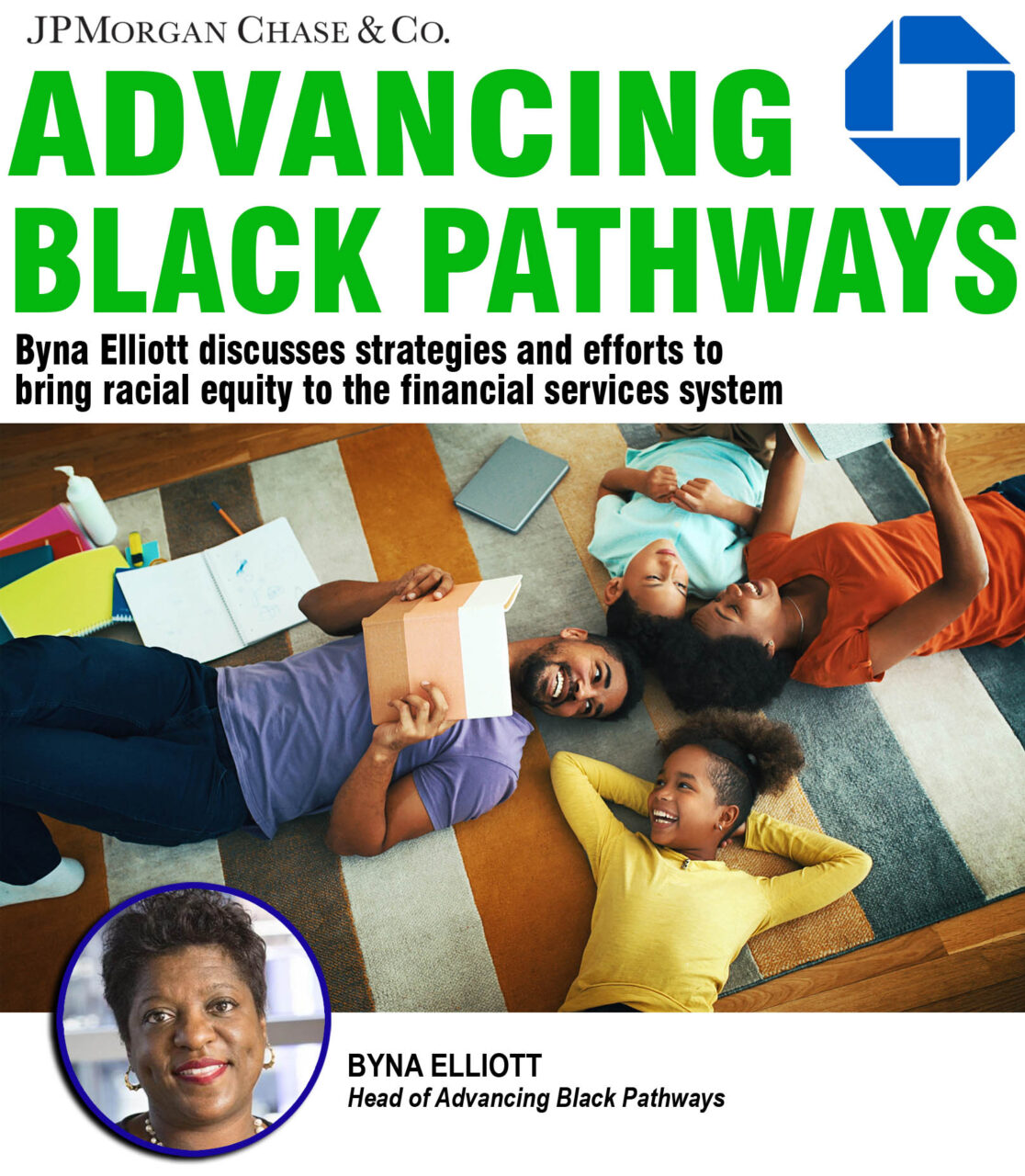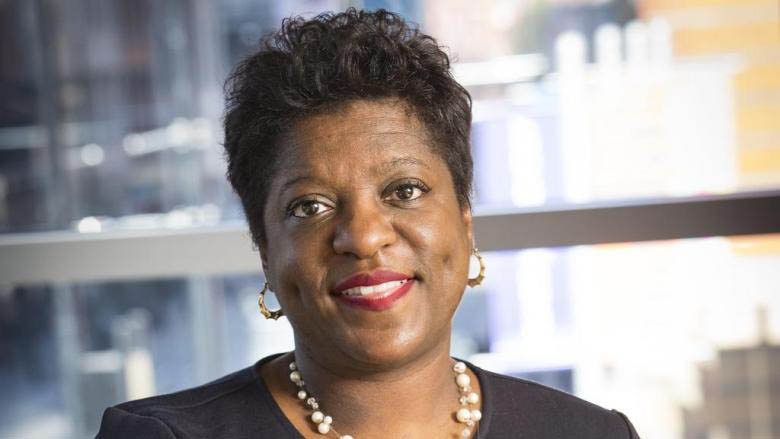Last December, Byna Elliott joined JPMorgan Chase & Co. to lead Advancing Black Pathways, the firm’s strategy to strengthen the economic foundation of the Black community. Prior to joining JPMorgan Chase, Elliott was the Chief Enterprise Responsibility Officer at Fifth Third Bank, where she oversaw corporate social responsibility and Community Reinvestment Act efforts, including environmental sustainability initiatives, philanthropy, ethical business practices, and economic responsibility.
In leading Advancing Black Pathways, Elliott will now play a key role in executing JPMorgan Chase’s strategy to address the key drivers of the racial wealth divide through a $30 billion commitment over the next five years. We recently caught up with Elliott to discuss why she took on this new role, what she hopes to accomplish, and lessons she’s learned after more than 20 years in the community reinvestment space.

You recently joined JPMorgan Chase to lead Advancing Black Pathways after more than 20 years at Fifth Third. Why’d you decide to take on this new challenge, and what do you hope to accomplish?
I consider it my life’s work to manifest a tangible, positive impact for communities in need. And I was fortunate enough to have been in a role at Fifth Third where we were able to make substantial investments in underserved communities across this country over the last five years. But I realized back in June of 2020 – following the deaths of George Floyd and Breonna Taylor – that I wanted to do more for the Black community. Although the work that I’d done prior to joining JPMorgan Chase was meaningful, I realized that I had a deep desire to focus my energies on driving impact and creating economic opportunities for Black people.
I know what it’s like to be in need. I’m a proud native Detroiter, and I didn’t have much growing up. But my mother and grandmother instilled within me a sense of community and concern for others. And now that I’m at this point in my career, I’m ready to devote my energies towards closing the racial wealth gap. Ultimately, my goal with Advancing Black Pathways is to help JPMorgan Chase succeed in its push to help Black people achieve sustained economic success. It’s an ambitious challenge that’s never been executed with such intentionality by a bank and I’m excited about the opportunity to contribute.

Last fall, nearly two years after launching Advancing Black Pathways, JPMorgan Chase announced a $30 billion commitment to advance racial equity in the financial services system. And throughout 2020, we saw significant financial commitments from a number of firms across the corporate sector. In your view, why are these types of initiatives necessary? And how will we know whether or not they’ve succeeded? As bad as 2020 was for us – and for the Black community, in particular, I am thankful that it at least sparked a national dialogue and awakening on the issue of race in this country. I believe there was a collective realization in both the public and private spheres that we’ve got to do more. That it’s our collective responsibility to take a stand and finally do something to address centuries of structural racism in our country. These types of initiatives are necessary because we’ve had a racial wealth gap in our country that’s persisted for generations. It’s important that business and government leaders acknowledge this gap as the end result of policy failures across both the public and private sectors, and that the time has come for us to address the root causes of it head-on. With Advancing Black Pathways, we decided to focus on several areas where Black Americans have historically trailed other groups: educational achievement, wealth creation, and long-term career success. To help us understand the impact, and whether we’re succeeding in making a difference, we’ve set benchmarks and goals for us to hit across each of these areas. And we run it like a business – with regular reviews and assessments of







